Family of truckie killed in ice-fuelled crash awarded $500,000 as drug use was in ‘course of employment’
The family of a truckie who crashed while high has been awarded a payout after his drug use was ruled to be in the “course of his employment”.
EXCLUSIVE: The family of a truck driver who died in a crash while high on ice has been awarded a payout of more than half a million dollars after the Workers Compensation Commission found he was acting within the course of his employment at the time.
Darren Hughes, 42, had worked for up to 36 hours and had been smoking what his partner described as “little rocks … in a glass pipe” to help him stay awake, when his B-double semi-trailer veered off the road and into the bedroom of a converted petrol station where an elderly couple were asleep, just after 3am in the South Australian town of Bordertown on December 12, 2013.
Mr Hughes, from Corowa in NSW, died in the accident while his partner, Erica Slovic, then 45, who was asleep in the truck’s cabin at the time, had to be cut from the wreckage. The female occupant of the residence, 67, was trapped under falling debris and also sustained serious injuries, while her husband was miraculously unhurt.
“He smoked little rocks, which I think was called ice, in a glass pipe,” Ms Slovic later told the Coroner’s office.
“The last time I saw him smoke some ice was the night of the collision and before we left Millicent … I had been telling Darren that he needed to take a proper break, but he just ignored me.”
Ms Slovic lodged a death benefits claim totalling $504,350 against his employer, Paramount Freightlines, but workers compensation insurer GIO declined liability on the basis that Mr Hughes was under the influence of methamphetamine and therefore not acting within the course of his employment.
Santone Lawyers, representing Ms Slovic, appealed the decision in the Workers Compensation Commission.
Using police investigation reports and information from GPS data and Safe-T-Cams, her lawyers reconstructed the events leading up to the accident to show that Mr Hughes was subject to a gruelling schedule and had not slept for two days prior.
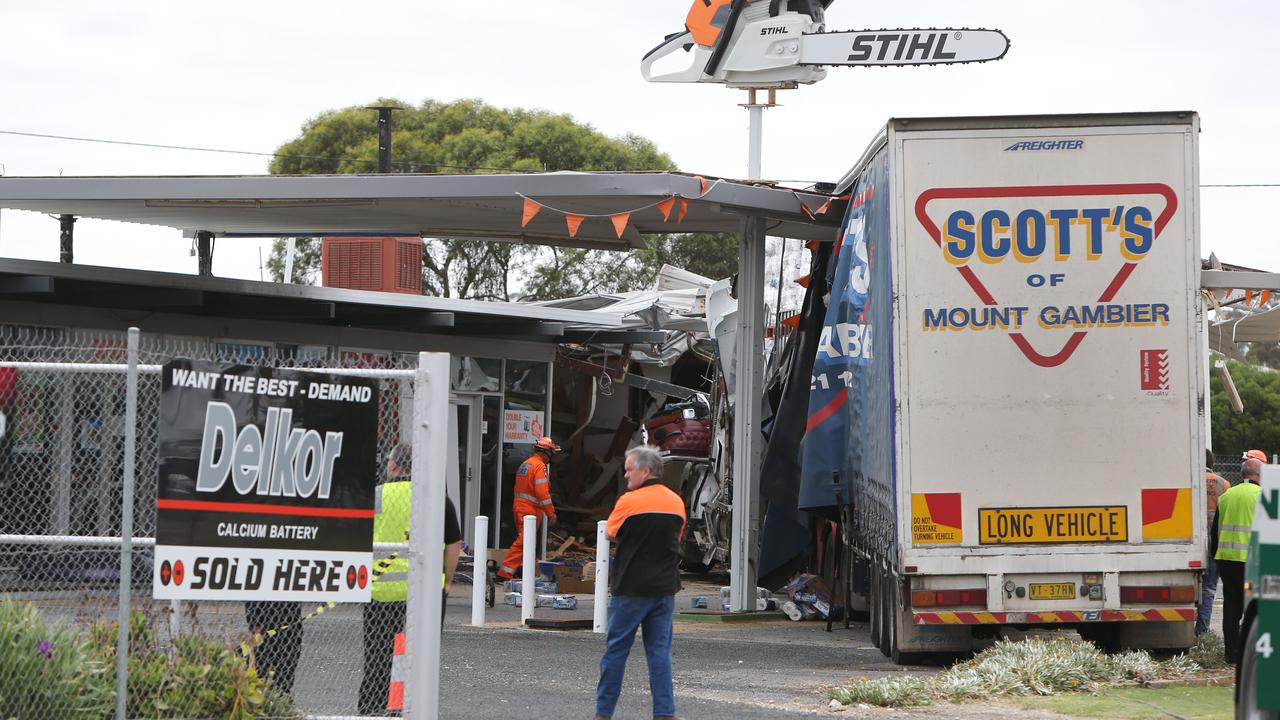
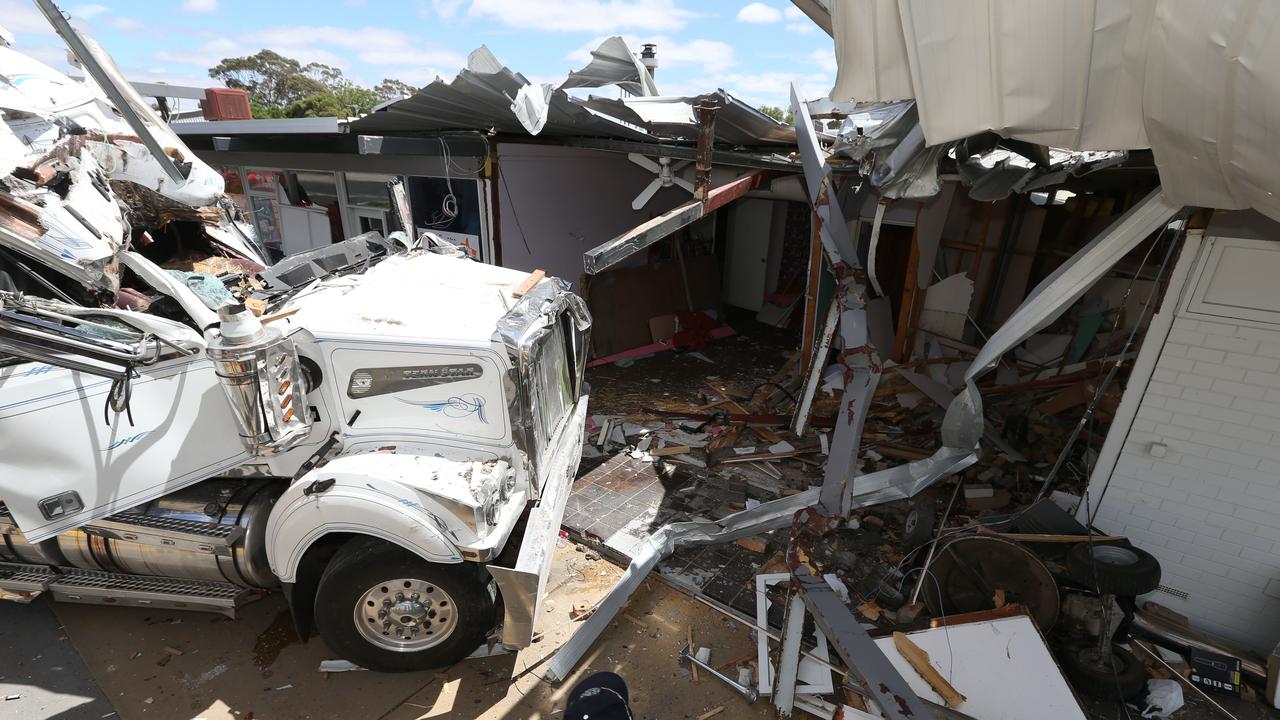
Police slam uncooperative companies
At the time, Mr Hughes was carrying a load of toilet paper and nappies from the Kimberly-Clark depot in the South Australian town of Snuggery.
When an investigator with SA Police visited the Mill Depot, she noted that Mr Hughes had departed at 8.45pm on December 11 and the shipment was due at 11pm the following day at Erskine Park in NSW, roughly 15 hours away – a distance too great to be completed under his solo standard work option, which allowed for a maximum of 12 hours of work and a minimum of seven continuous hours of stationary rest in any 24-hour period.
The investigator spoke to a supervisor at the depot who told her there was no specific policy regarding driver fatigue or checking of drivers’ diaries to ensure compliance with legal time frames, and a random inspection of one driver’s diary made it clear to her that he was not complying with the regulations.
After she arranged an appointment with Mount Gambier-based trucking company Scott’s Transport, which subcontracted to Paramount Freightlines, to obtain further information, “she received a phone call saying that the company would not co-operate”, the Workers Compensation Commission noted.
The company later informed her that it did not conduct any checking or auditing of the work diaries of subcontractors to ensure compliance with the regulations.
In a statement to the commission, Mr Hughes’ mother, Marie Hughes, claimed her son had told her “that he was using drugs whilst working at Paramount and that he was using them to get his driving done because of the pressure put on him by the management at Paramount to get to places”.
She said Mr Hughes, while he was working at Paramount, had told her words to the effect, “I’ve got to be there, Blake (Milford, the owner of Paramount) has told me I’ve got to be there, if I don’t have it I will fall asleep. I feel stressed. The other drivers do it as well.”
Mr Milford has strenuously denied any wrongdoing and stressed that his company has a zero-tolerance policy towards drug taking.
He told the commission that prior to the accident there were “no issues in relation to the GPS reports” from Mr Hughes’ truck and that he had previously informed him that “I didn’t care how late he might be but I told him he needed to contact me if he was going to pull over for a sleep and then I could contact the customer and advise of the time of delivery”.
“I had no problem if he was tired or if any of my drivers are tired and need to sleep,” he said.
“I strongly doubt any claim from any party that Darren Hughes was not aware of our stance and policies on being under the influence whilst employed by our business. I regard taking illegal drugs such as amphetamines, methylamphetamines and methorpan whilst performing duties as a driver for our company as being entirely unacceptable behaviour and this was made very clear to Mr Hughes (before) he commenced employment with us.”
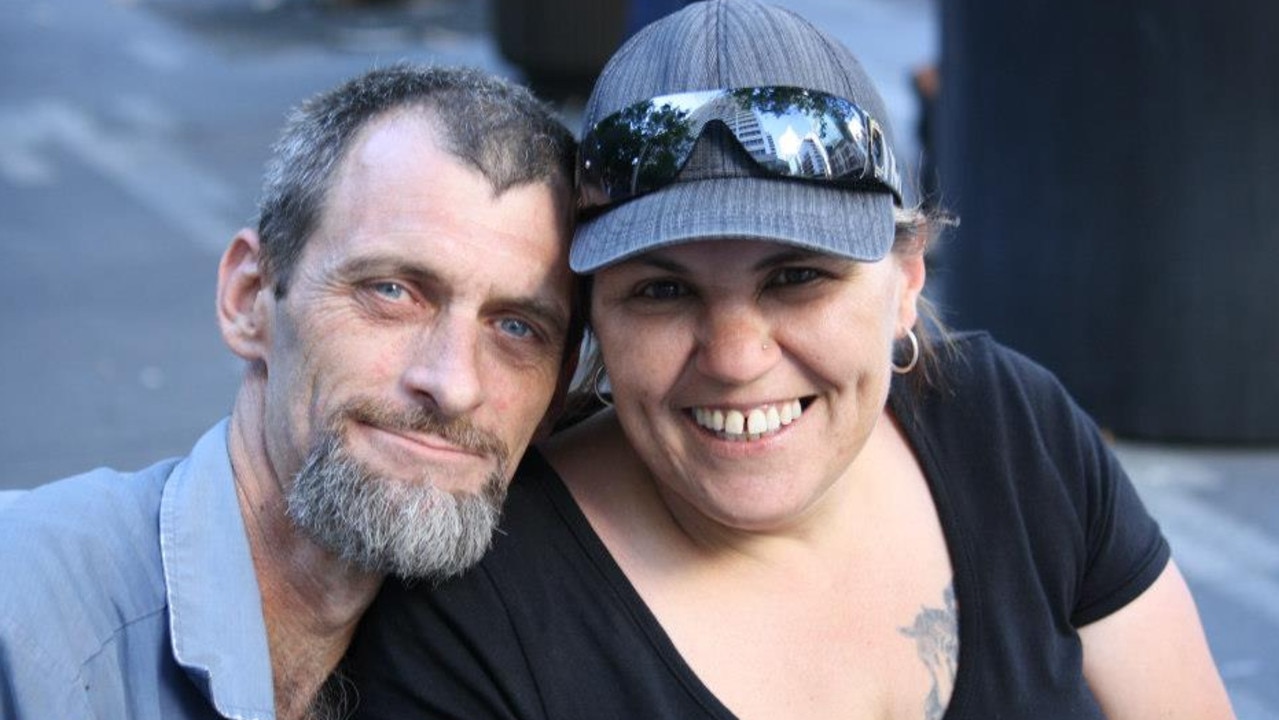
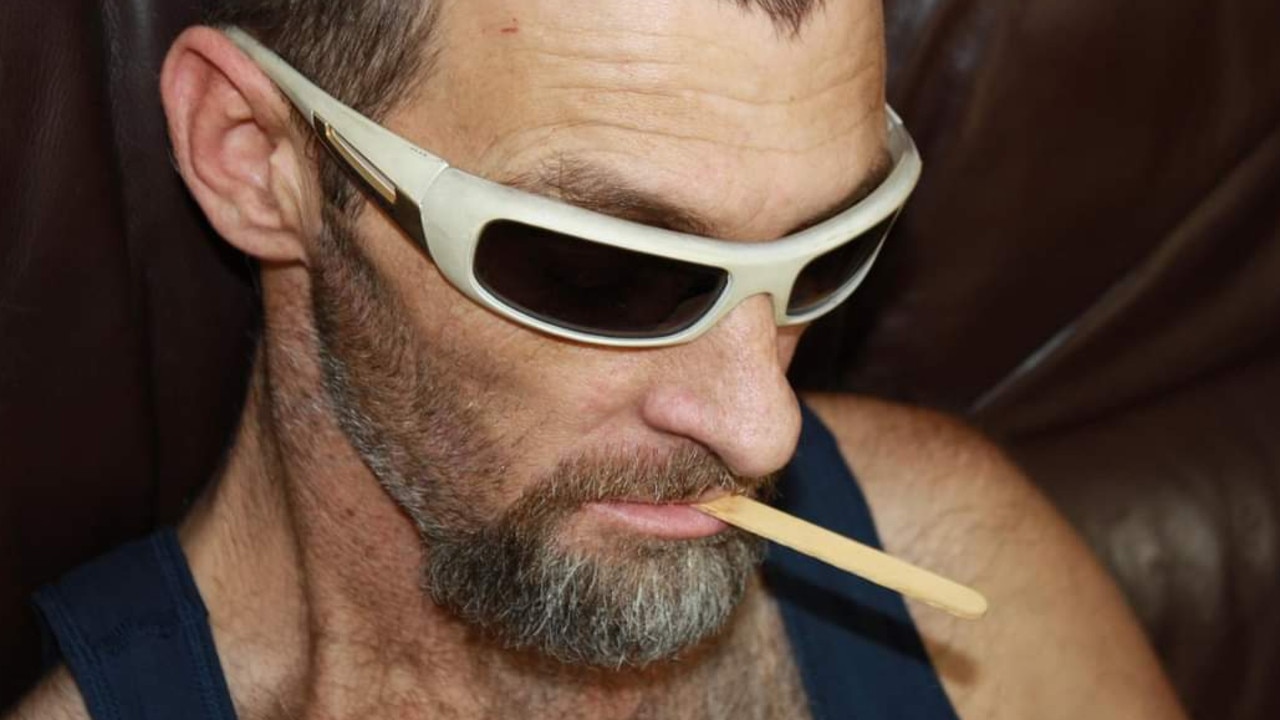
Ice used ‘in course of employment’
The Workers Compensation Commission noted a similarity with a previous case in which a truck driver died of a heart attack at a NSW rest stop after taking methamphetamine.
Insurers in that case argued that by taking the drugs, the deceased man had committed an act of gross misconduct that “took him outside the course of his employment”.
In WorkCover Authority of NSW v Walsh, the Court of Appeal disagreed with that position, finding that “for his misconduct to have that effect, it was required in all the circumstances to have been misconduct that was entirely foreign or repugnant to his employment”.
The court noted that in that case, the driver had “ingested the amphetamine for the purpose of keeping himself awake and alert so as to enable him to complete his journey”.
This was distinct from another drug-taking compensation case where the worker “had left the factory floor to inject himself with heroin in another room, where he had burnt himself when he fell on a heater”.
In that case, the judge found that “at the time the serious and wilful misconduct occurred – when he actually injected himself with heroin – he was not in the course of employment”.
Workers Compensation Commission arbitrator John Wynyard noted that the evidence from the SA Police investigator “regarding the obstruction she encountered from Scott’s Transport and the somewhat lax attitude exhibited by staff at the Mill Depot at Snuggery as to compliance with the relevant road regulations are indications that the long-haul trucking industry is generally unconcerned with driver fatigue or the relevant regulations”.
He acknowledged that the evidence suggested use of amphetamines amongst long-haul truck drivers was common, adding that while it was misconduct “and indeed a criminal offence”, the previous rulings in Walsh “make it clear that such misconduct nonetheless arises out of the course of employment”.
“The problem is notorious, and I can only conclude that Mr Milford is either naive or disingenuous in his assertion that he did not tolerate the use of drugs in his trucks,” Mr Wynyard said.
“The deceased had been engaged in driving a load and had been working for some 24 hours (more probably 36 hours). In that time he had little opportunity to rest or sleep, and had ingested the methylamphetamine for the purpose of keeping himself awake and alert.”
He continued, “In any event it could not be said that the deceased’s conduct was entirely foreign or repugnant to his employment. Accordingly, I find the first respondent (Paramount Freightlines) to be liable in respect of the death benefits payable as a result of the death of Darren Lesley Hughes.”
He awarded the payout to Ms Slovic, Mr Hughes’ widow Julianne Hughes, and his mother, Mrs Hughes.
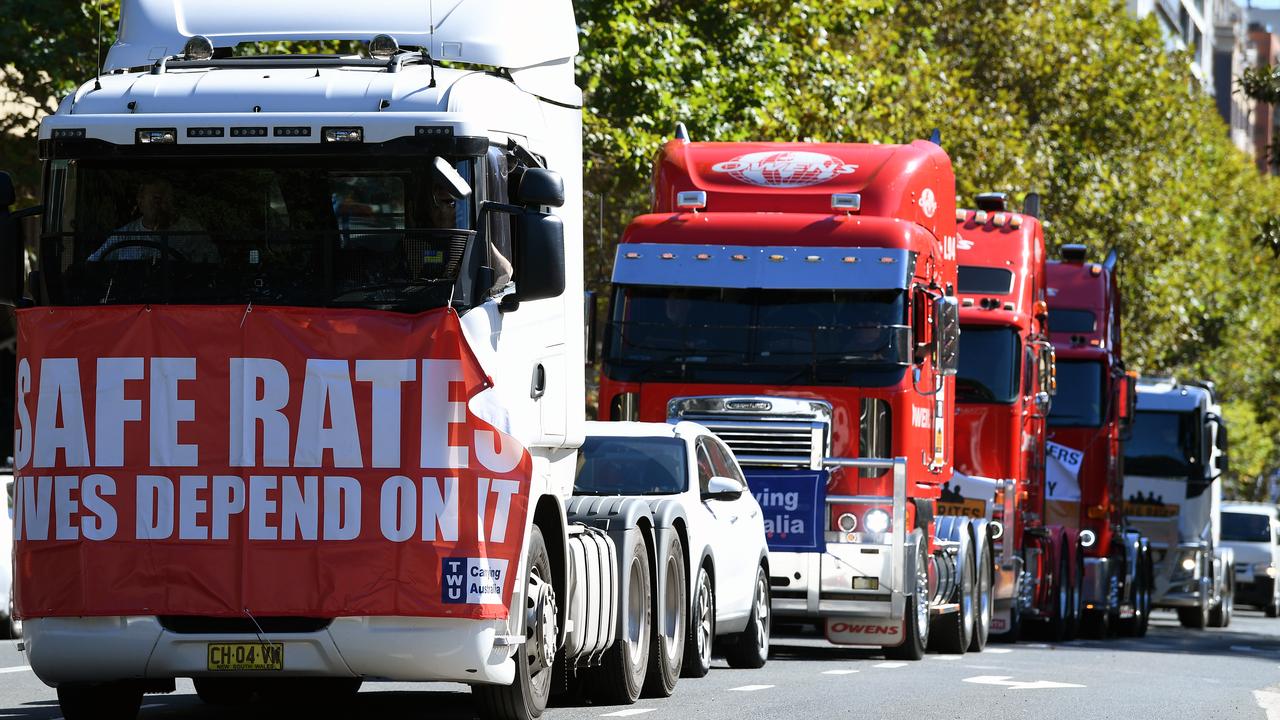
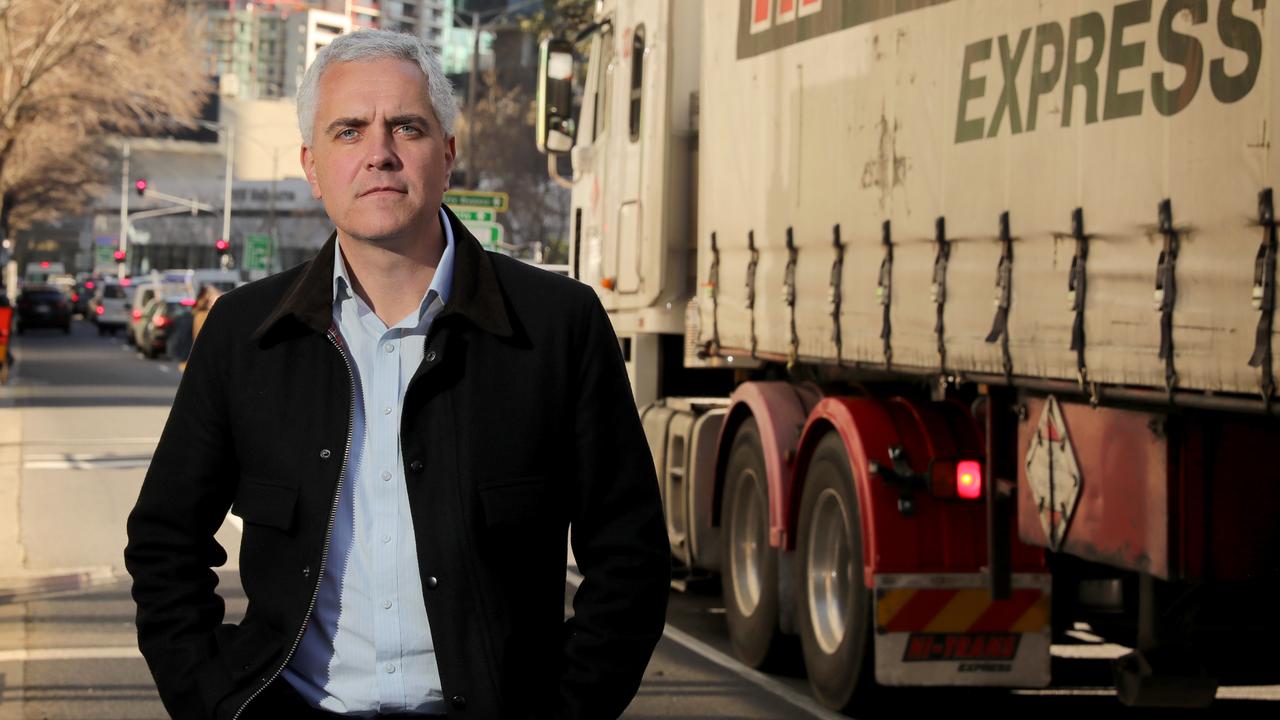
‘A wake-up call to trucking companies’
Santone Lawyers principal Carmine Santone said the decision was a “wake-up call to trucking companies that they will be held liable for injuries or death arising from noncompliance with driver safety and minimum rest break protocols”.
Reached for comment on Tuesday, Mr Milford hit out at Mr Wynyard’s comments.
“I am not naive or disingenuous,” he said.
“With an employee with only 12 days service, it is a tragedy when somebody dies, but I stand by my comments that myself and our company do not tolerate the use of any illicit substance.”
It comes as the Transport Workers Union is holding an event laying crosses and hi-vis vests on the Parliament House lawn in Canberra on Wednesday to mark Workers’ Memorial Day.
According to the most recent figures from Safe Work Australia, 58 transport workers were killed on the job in 2019 – 95 per cent in road freight – making it by far the deadliest industry.
“This case highlights just how badly things can go wrong in the transport industry because of a lack of regulation,” TWU National Secretary Michael Kaine said in a statement to news.com.au.
“There is nothing to stop a tragedy like this from happening again as there is no body or agency in place to investigate why it happened and suggest preventive measures. We need to know what the dynamics of the trucking company were and the contract the driver was working on that allowed this to happen. Was the company whose goods were being transported paying enough to make sure the work was being done safely? Ultimately we need measures put in place to stop tragedies like this from happening again.”
Mr Kaine added, “An independent tribunal was torn down by the Federal Government in April 2016 which was investigating low-cost transport contracts which lead to drivers being pushed to work fatigued, work long hours, speed, use artificial stimulants to stay awake and skip their rest break. The Government put nothing in its place and now when horror crashes happen there is no follow on. Families and communities are left devastated and the Federal Government turns away.”
Andrew McKellar, chief executive of the Australian Trucking Association, said truck laws were much tougher now than they were in 2013.
“A trucking business that fails to meet its safety duties could now be subject to a fine of up to $3 million,” Mr McKellar said.
“Trucking business directors and executives now have an obligation to exercise due diligence to ensure their business complies with the law. The maximum penalty for an individual for failing to comply with this duty is $300,000 or five years’ imprisonment – or both. The ATA strongly argued for these changes to the law, because safety is good business.”
A 2008 government-commissioned report by the National Centre for Education and Training on Addiction on drug use in the Australian workforce found that nearly one-third of long-haul truck drivers admitted to using “stay-awake” drugs such as methamphetamine to combat fatigue.
Earlier this month, Mohinder Singh, 48, a truck driver who last April killed four Victoria Police officers while high on ice after he crashed into the emergency lane of the Eastern Freeway, was jailed for 22 years.
Ms Slovic, who passed away earlier this year, at the time updated her profile picture on Facebook with a tribute to the fallen officers bearing a blue ribbon and the Victoria Police emblem with the words, “Rest in Peace.”
Read related topics:Employment




